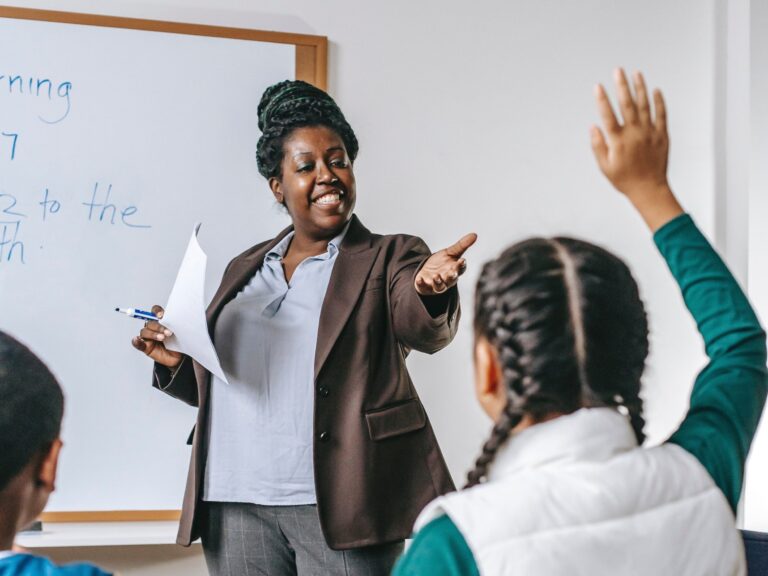In today’s fast-paced, consumer-driven world, financial literacy is no longer a luxury—it’s a necessity. Yet, despite its importance, personal finance education is still absent from many school curriculums. Teaching financial literacy in schools can equip students with the knowledge and skills they need to make informed and responsible money decisions throughout their lives.
Why Financial Literacy Matters?
From budgeting and saving to understanding loans and taxes, financial literacy covers the fundamentals of managing money. These are skills everyone will need, yet many young people graduate without ever learning how to create a budget or understand the consequences of debt. As a result, they may struggle with financial stability in adulthood, relying on trial and error to learn essential money management skills.
Starting early can change that. Introducing students to financial concepts at a young age fosters healthy financial habits that can last a lifetime. It also builds confidence in handling money-related decisions, reducing the likelihood of falling into debt or living paycheck to paycheck.
Tackling Real-World Challenges
With the rising costs of living, student loans, and credit card debt, students need more than academic knowledge—they need practical tools. Financial literacy education helps them understand:
- How credit works and how interest accumulates.
- The importance of saving and emergency funds.
- Smart spending habits, distinguishing wants from needs.
- Long-term planning, including investing and retirement savings.
These skills empower students to avoid financial pitfalls and prepare for the future, from buying their first car to planning for homeownership.
Bridging The Socioeconomic Gap
Financial literacy also plays a vital role in promoting economic equality. Students from lower-income backgrounds often don’t have the same financial guidance at home as their wealthier peers. By making personal finance education a standard part of the curriculum, schools can help level the playing field. Every student, regardless of background, deserves access to knowledge that can help them break the cycle of poverty and build generational wealth.
Encouraging Responsibility And Independence
Teaching financial literacy goes beyond math—it’s about decision-making, responsibility, and planning. When students learn how to track their spending or save for a goal, they begin to understand the value of money and how to manage it wisely. This sense of financial accountability can spill over into other areas of life, such as academic motivation, career planning, and long-term goal setting.
Integrating Financial Literacy Into The Curriculum
Financial education doesn’t need to be a standalone course. It can be woven into subjects like mathematics, economics, and social studies. For example, students can practice budgeting with real-life scenarios in math class or explore the history of money and trade in history lessons. Interactive methods—like using budgeting apps, financial games, or simulated investment portfolios—can make learning about money both fun and impactful.
Moreover, involving local financial professionals as guest speakers can give students real-world insight. Practical assignments like creating mock budgets, analyzing pay stubs, or comparing loan options can reinforce learning in meaningful ways.
A Long-Term Investment
Incorporating financial literacy into school curriculums isn’t just good for students—it’s good for society. Financially literate individuals are more likely to contribute to a stable economy, avoid burdensome debt, and make informed decisions that benefit their families and communities. It’s an investment in the next generation’s stability, security, and success.
Final Thoughts
As the world becomes increasingly complex, students must graduate with more than academic credentials—they need life skills. Financial literacy is one of the most important yet overlooked parts of that toolkit. By integrating it into school curriculums, we empower young people to take control of their financial futures and make smart decisions from day one.
Here are some helpful resources to explore :
https://c2bir.org/
https://seabreezetinyhomes.com/
https://lidolimarangi.it/
https://situspokerbagus.com/
https://mvcfashionn.com/
https://informagiovanicirie.net/
https://ebrain-news.com/
https://cbdisolateherms.com/
https://cbdcrowdfund.com/
https://pokernews.info/
https://rospedia.com/
https://avataresyfirmas.com/
https://onvd.org/
https://thinkingcreatively.org/
https://tvoicelessons.com/
https://halfashoestring.com/
https://ipsecurityforum.it/
https://visitandrun.com/
https://iraq-live.com/
https://fashioncn.org/
https://healthcareforgunner.com/
https://lookoff.co/
https://free-download-casino.com/
https://freshamericannews.com/
https://steelvalleyarts.org/
https://homeinsuredbyus.com/
https://marijuanadispensarynearmeshop.com/
https://simsoncasino.com/
https://fvtlaw.net/
https://atlanticcwm.com/






